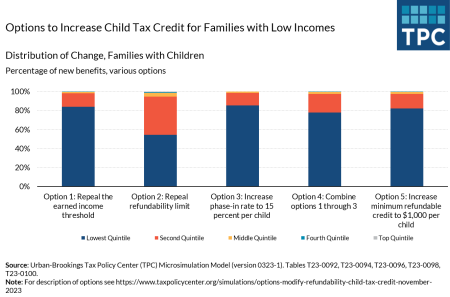Litigation is time-consuming and expensive. It is therefore no surprise that most litigation concludes, not by trial, but rather through the parties agreeing to settle their differences through execution of a settlement agreement.
Each settlement agreement is different. In most instances, however, a standard agreement will address payment by one party to another party in exchange for a release of liability. It is up to the parties how they want to structure the settlement and what language they elect to use to memorialize the terms.
Although it is likely apparent to the parties that the language used in the settlement agreement is important to resolve their claims, it is likely less obvious that the language that they choose also has significant federal income tax consequences. Indeed, not all settlement payments are treated equally under tax law. For the recipient, the payment may be taxable, not taxable, or partially taxable. Moreover, if the payment is taxable, it may be subject to ordinary income tax rates or more preferential capital gains rates. To make these determinations, federal courts often turn first to the language used by the parties in the settlement agreement.
A recent decision from the Tax Court illustrates this point well. In Roman v. Commissioner, T.C. Memo. 2023-142, Mr. Roman suffered from physical and mental disabilities. He had been married to Mrs. Roman until 2004. When their marriage ended, Ms. Roman continued to reside with Mr. Roman to provide him with care.
In 2010, the Romans jointly moved into an apartment complex known as the Jefferson. Shortly thereafter, the Romans made complaints to the apartment regarding the living conditions. In addition, the Romans sought accommodations from the Jefferson due to Mr. Roman’s disabilities. The disputes between the taxpayers and the apartment complex culminated in numerous lawsuits and an administrative claim with the California Department of Fair Employment and Housing.
While those various claims were pending, the owners of the Jefferson tried to sell the apartment. During the sales process, a potential purchaser, BRE, expressed interest in the property. But BRE later discovered that the Romans lived in the Jefferson and communicated to the owners that it would not purchase the apartment complex unless the owners agreed to reduce the sales price or take action to have the Romans removed as tenants. The reason? BRE had been sued by the taxpayers previously after they had attempted to lease a unit owned by BRE.
To facilitate the sale of the Jefferson, the owners sent an attorney to meet with the Romans. The attorney offered them $700,000 to vacate the unit. Interestingly, the attorney provided the taxpayers with 15 minutes to accept the initial offer. For each 15-minute delay, the offer would be reduced $50,000. The Romans accepted the terms within the first 15-minute interval, agreeing to $700,000 in exchange for leaving the unit.
The parties entered into a settlement agreement. The agreement referenced the Romans’ pending litigation and contained a general release provision absolving the Jefferson from all claims related to the litigation and “all other losses, liabilities, claims, charges, demands and causes of action, known or unknown . . . arising directly or indirectly out of or in any way connected to these transactions or occurrences[.]” The settlement agreement made no mention of physical injuries or sickness.
The Romans received the $700,000 settlement payment in 2013. Later, the Jefferson issued Ms. Roman an IRS Form 1099-MISC, Miscellaneous Income, reporting the $700,000 payment. Neither Mr. Roman nor Ms. Roman reported the settlement payment as income on their respective 2013 tax returns. The IRS information return matching system caught the omissions of income and issued Notices of Deficiency to the Romans.
In the Tax Court, the taxpayers argued that the settlement payment was not taxable under section 104(a)(2) of the Code. Under that provision, a taxpayer’s gross income does not include settlement payments made “on account of personal physical injuries or physical sickness.”
To determine whether the settlement payment fell within section 104(a)(2), the Tax Court first turned to the settlement agreement itself. The court noted that there was no mention of personal physical injuries or physical sickness within the four corners of the agreement. Rather, the agreement merely provided broad releases of a multitude of actual and potential claims associated with the apartment complex and the pending litigation. In line with a long line of Tax Court cases on this same issue, the court held that that the language was insufficient in and of itself to fall within section 104(a)(2).
Because the settlement agreement was silent on the issue of physical injury and sickness, the Tax Court next analyzed whether the facts and circumstances supported the Romans’ claim and, more specifically, whether there was evidence to show that the Jefferson’s intent in making the settlement payment was to compensate the taxpayers for physical injuries or sickness. On this point, the Tax Court held in favor of the IRS, noting that the facts and circumstances demonstrated instead that the payment was made to help remove the Romans from the apartment complex. Moreover, nothing contained in the litigation documents associated with the Romans’ claims against the Jefferson mentioned any alleged damages for physical injuries or physical sickness. At most, the allegations potentially referenced emotional distress, which is usually outside the scope of section 104(a)(2).
Because the taxpayers in Roman failed to meet the requirements of section 104(a)(2)—i.e., they could not show that the payment had a sufficient nexus to any personal physical injuries or physical sickness—the court held that the entire $700,000 payment was taxable (although, the court later found that each should only be responsible for one-half of the income). The court also went on to hold that penalties were appropriate against both taxpayers. The decision is a stark reminder that words often matter—and, that taxpayers involved in settlement talks should consult with a tax professional prior to signing on the dotted line.
Read the full article here









